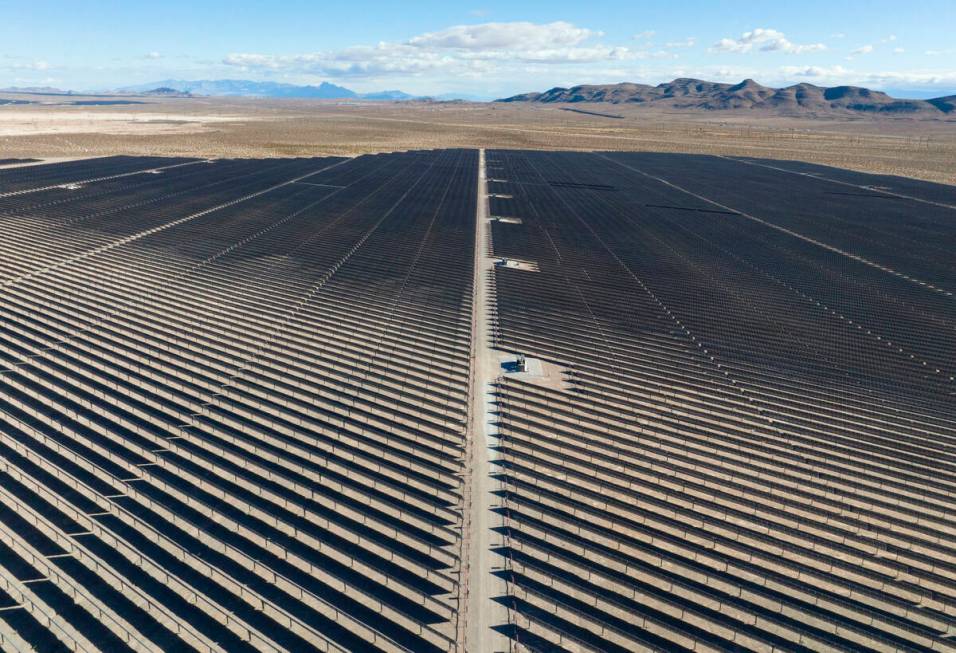As energy demand skyrockets in Las Vegas, NV Energy turns to solar

On the far north end of Las Vegas Boulevard, there’s a different kind of glimmer that Sin City isn’t as well known for.
More than 334,000 solar panels glisten in the sun at NV Energy’s Dry Lake solar project, harnessing the power of the rays and transmitting it to the power grid for the valley’s 2.3 million residents to use.
The 750-acre solar farm, located on the other side of a natural gas plant, is a part of the utility’s goal of transitioning half of its energy sources to renewables by 2030.
“This picture right here really represents a balanced energy portfolio,” said Doug Cannon, NV Energy president and CEO. “And that’s really what we’re after — making sure that the lights stay on in a way that keeps costs low for our customers.”
The 150-megawatt facility has been operating since the beginning of the year, but it didn’t start generating energy at its full capacity until May. One megawatt is enough power for about 750 to 1,000 homes, according to officials.
Tesla was a contractor for the project, providing 112 batteries that can store 100 megawatts of power. A spokeswoman said NV Energy shouldered construction costs on the front end, but through ratepayers, the project will eventually be covered.
Utility-owned solar guarantees local benefit
Among many desert conservationists in Nevada, the increase of solar has remained a hot-button issue. Many projects, including Dry Lake, encroach on desert tortoise habitat. Some remain worried about large-scale solar construction draining already-limited aquifers across the Silver State.
The Bureau of Land Management, which leased the land to NV Energy for 35 years, released a final version of its Western Solar Plan in September, putting Nevada at the forefront of potential solar development with the most land available for solar applications among any of the 11 states that the agency mapped.
NV Energy’s multibillion-dollar Greenlink transmission line projects will make solar projects across Nevada more feasible, allowing energy generated to travel to denser urban centers.
While private solar companies can sell off the power they generate to other private companies or utilities outside of Nevada, utility-owned projects like Dry Lake are guaranteed to directly benefit their surrounding communities.
In the future, NV Energy hopes to evolve as new technology becomes available, officials said. Renewable energy is high on the priority list.
“The technology is going to change,” said Dani Strain, NV Energy project director. “We’ll have to see.”
Contact Alan Halaly at ahalaly@reviewjournal.com. Follow @AlanHalaly on X.